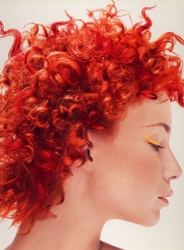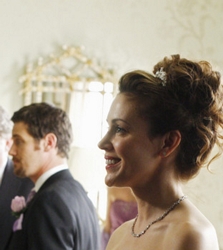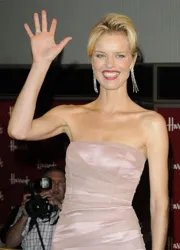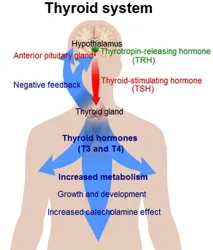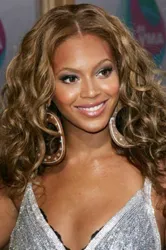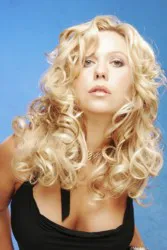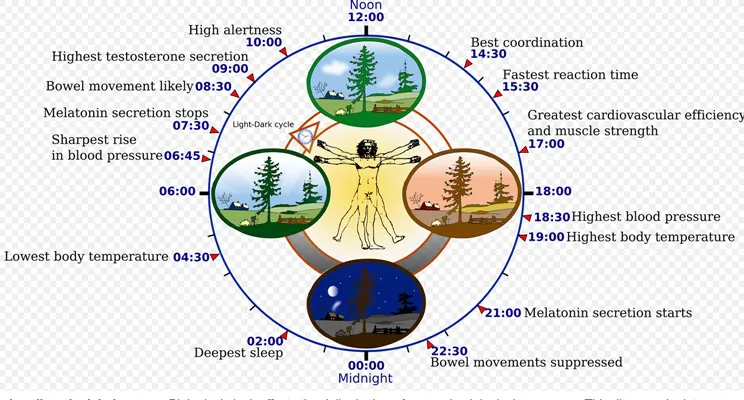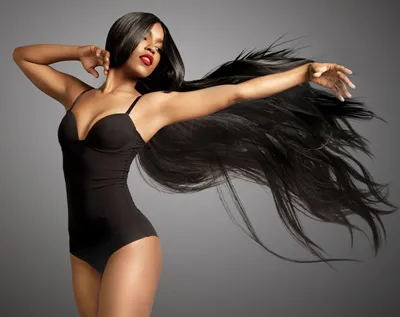
Curly Hair Changes Due To Hormones
Although it doesn't happen to everyone, some people with naturally textured hair such as natural waves, curls, coils or kinks may notice that as they get older and their hormones change so does their curls.
Natural curls can also change during or after pregnancy, when taking some types of hormone replacement therapies and even in some cases with birth control pills.
A good friend of mine who just turned 36 and had her first baby a year ago noticed that her previously tight curls had dropped and loosed up since she got pregnant and had her baby. She hasn't used chemicals of any kind on her hair because she was pregnant and then didn't have time to mess with her hair after the baby was born.
Even though she uses a Low Poo cleansing formula, only washes once a week, detangles her curls in the shower, plops her curls and air dries, she is still having curl clumping issues.
Even though she's tried a myriad of leave-in conditioners, creams, gels, mousses and sprays her roots and ends are straight with only curls forming in the middle of her chin length strands. Even worse, the more she tried to reform her once glorious curls she finds the products are leaving her hair sticky and crunchy.
Although there are always a wide range of possibilities when hair of any kind misbehaves, when it comes to pregnancy hormones expect the unexpected. Naturally curly tresses which used to curl tightly or air dry perfectly may lose all or part of it's natural curl profile. This can also happen to some naturally textured people who undergo chemo or other hormone therapies.
Many curl experts have also discovered that naturally curly or textured hair tends to go through cycles and the texture patterns may change every 5-7 years.
Options For Dealing With Hormone Challenged Hair Textures
If you have experienced pregnancy or hormone related curly hair changes there is hope for recovering your natural texture. Some options include the following:
1. Find the very best natural texture professional in your area and go for a consultation. When you go for the consultation wear your hair the way you do on a regular basis so they can evaluate what may be causing the problems. A good natural texture expert will be able to figure out what might be the true cause of any current curl challenges.
2. Do a complete evaluation of curl product use. In some cases products which worked before pregnancy or hormone changes may no longer worker after pregnancy or similar treatments.
One common culprit is often products which have a lot of chemicals or silicones. While this is not always the case, it can be the cause in some cases. When silicones (dimethicone or similar cone products) build up on hair or leave a heavy coating on the outer layers it can weigh down delicate curls causing them to flatten. Especially throughout the roots or along the edges.
3. Avoid the quick fix of layering. Some hairstylists, especially those not versed in curly hair cutting may suggest creating layers throughout the hair to help restore the curls. This could prove to cause more problems than solutions.
A hairdresser who understands how to cut curly or naturally textured hair to honor the natural structure might be able to create just a few shorter pieces throughout the top of the hair to help natural texture form more easily. Although this option might not work for everyone it might work for some.
4. Be patient. Sometimes it just take a little time for hair to catch up with any changes in the body. It is common for women who grow lots of hair during their pregnancy find that it all falls out after the baby is born. The same may be true with texture which changes as the result of pregnancy.
5. Don't anything drastic. Sometimes when hair misbehaves the first thought is to chop it all off, color it or have extensions added. If you sincerely wish to get your natural texture back in shape then be patient, consider all the options and don't give up. When there's a will there's always a way.Social Media Network Information
Please follow us on Twitter at: https://Twitter.com/HairBoutique. I look forward to meeting new people from all walks of Twitter and learning from their Tweets.



